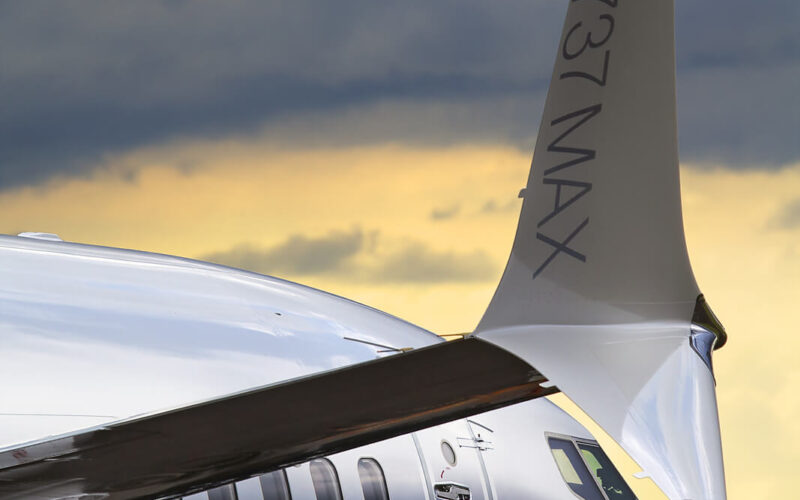The Paris Air Show 2019 reigned the headlines all throughout last week, June 17-23, with big deals, new aircraft unveilings and innovation in autonomous and electric flight taking the center stage at the event. But expectations coming into the show had been low for the world’s two largest aircraft manufacturers, Airbus and Boeing. Was it all negative in the end?
In the weeks ahead of the airshow, industry analysts had little optimism regarding the amount of commercial aircraft deals Boeing and Airbus would seal at this year’s biggest aerospace event. Engulfed in the 737 MAX crisis, no one expected Boeing to shine. But the industry did look forward to an update on the plane maker’s new middle-of-the-market aircraft – the Boeing 797 or NMA.
Until rumors began to circle about the possible launch of an extra long-range variant of Airbus’ A320 family jet, there seemed to be no big surprises in store by the European plane maker either. Industry analysts, therefore, presumed the two plane makers would rely on their more traditional aircraft to secure deals at Le Bourget.
What was troubling, however, was that both Airbus and Boeing were coming into the event experiencing a serious order slowdown. In April, Airbus saw just five new orders – two A330s and three A350s; in May – just one – an ACJ320neo business jet, which was sold to a private buyer, as the plane maker’s orders and deliveries book indicates.
Considering the same time period for Boeing – in April, the company received just four orders – for the 737 MAX – from an undisclosed customer; and in May, the company had exactly zero orders for any of its commercial planes, Boeing’s orders and deliveries logs reveal. And this is not taking into account the amount of cancellations that both plane makers witnessed since the beginning of the year. Both Airbus and Boeing’s hopes were to make up for the lost business at the Paris Airshow.
Airbus reigned as Boeing remained reserved
The European plane maker stole the thunder early on with the launch of its new long haul A321XLR jet. According to current estimations, based on the company’s announcements, Airbus received 142 orders and commitments for the XLR: 27 from Air Lease Corporation, 32 from Indigo Partners, 20 from American Airlines (A1G) (AAL) , 15 from Saudi Arabian Airlines, 14 from IAG; Cebu Pacific, Qantas, Flynas each committed to 10 XLRs; another four were ordered by one of the launch customers, Middle East Airlines.
Aside of orders and commitments, customers also opted to convert some of the Airbus jets in their fleets, mostly A320neos and A321neos, to the A321XLR version. An estimated total of 97 conversions were requested by some of the airlines mentioned previously: American Airlines (A1G) (AAL) decided to convert 30 planes, Qantas – 26, Indigo Partners – 18, JetBlue Airways – 13, and Flynas – 10. The pricing of the brand-new A321XLR has not yet been disclosed, but the A320neo is valued at about $110.6 million, and the A321neo is worth $129.5 million at list prices.
While the Airbus A320neo family of aircraft (the A321XLR being the new addition) clearly topped the plane maker’s orders list, with over 250 orders and commitments (excluding conversions) according to preliminary data, the former Bombardier C Series aircraft, now known as the A220 family of jets, also gained momentum at the show.
Airbus gathered a total of 85 orders and commitments for the A220 at Le Bourget: Air Lease Corporation signed for 50 A220-300s; another 10 A220-300s were ordered by JetBlue (JBLU) ; Nordic Aviation Capital selected 20 A220s; and Delta Air Lines contracted additional five A220-100s. The 100-135 seat A220-100 model is valued at $81 million and the larger 120-160 seat A220-300 variant is valued at $91.5 million at list prices.
Meanwhile, at the Boeing camp, expectations regarding the New Mid-Market Airplane (NMA) were shut down after Kevin McAllister, President and CEO of Boeing Commercial Airplanes, stated there would be no announcement about the 797 during the Paris Airshow. Airbus’ launch of the extra-long-range A321XLR jet has been viewed as a response to Boeing’s plans for the 225-275 seat NMA airliner.
The U.S. aerospace giant did not leave Le Bourget empty handed either. Perhaps overshadowing all the rather slow incoming deals being made at the airshow was IAG’s announcement of its intent to buy 200 Boeing 737 MAX planes, as the plane maker continues to grapple with the MAX crisis.
IAG’s purchase would include both the 737 MAX 8, currently grounded worldwide, and the larger MAX 10. According to Reuters, the agreement with Boeing is estimated to be worth more than $24 billion at list prices. A single 737 MAX 8 jet is worth $121.6 million at list prices, while the 737 MAX 10 is priced at $134.9 million.
One of the more noteworthy deals was signed with Korean Air, which committed to 30 787 Dreamliners: 10 787-10s and 10 787-9s; another 10 787-10 jets will be leased from Air Lease Corporation. The lessor itself committed to buying five 787-9 Dreamliners. The Boeing 787-9 is valued at around $292.5 million and the 787-10 at $338.4 million at list prices.
The other portion of commercial aircraft deals made by Boeing at the airshow, concerned the air cargo segment. GE Capital Aviation Services (GECAS) signed purchase rights for 10 737-800 Boeing Converted Freighters (BCF) and additional 15 options. ASL Aviation Holdings committed to 20 737-800 converted freighters, including 10 firm orders and purchase rights for 10 more. The other agreements include: China Airlines signing for six 777F; Qatar Airways ordering five 777F; and Turkmenistan Airlines intending to buy one 777-200LR.

